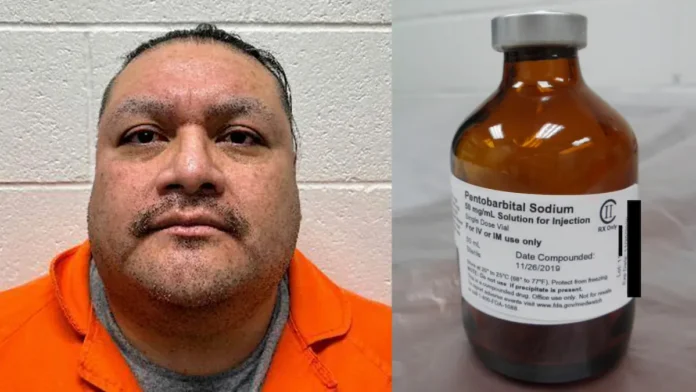Utah authorities said Saturday that they would abandon preparations to employ an experimental deadly medication combination in next month’s execution of a man in a 1998 murder case. They will instead look for a medication that has already been used in executions in many jurisdictions.
Defense counsel for Taberon Dave Honie, 49, filed a state court lawsuit to block the administration of the medicine combination, claiming it might cause the defendant “excruciating suffering.”
The execution set for August 8 would be Utah’s first since Ronnie Lee Gardner was executed by firing squad in 2010.
Honie was convicted of aggravated murder in the stabbing of Claudia Benn, his girlfriend’s mother, aged 49.
After decades of unsuccessful appeals, Honie’s execution warrant was issued this month, despite defense objections to the intended fatal medication combination.
They claimed that the first two medications he was to be given—the sedative ketamine and the anesthetic fentanyl—would not effectively prevent Honie from experiencing pain when potassium chloride was injected to halt his heart.
In response, the Utah Department of Corrections has opted to employ a single drug: pentobarbital. According to agency spokeswoman Glen Mills, lawyers for the state submitted court filings late Friday requesting for the complaint to be dismissed.
“We will obtain and use pentobarbital for the execution,” Mills told the audience. He said that agency officials still feel the three-drug combination was effective and compassionate.
State authorities previously said that they were aware of no other instances of the three-drug combination being used in an execution.
The Death Penalty Information Center in Washington, D.C., reports that pentobarbital has been used in executions in at least 14 states.
However, data suggests that pentobarbital may induce severe suffering, as shown in federal executions carried out in the latter months of Donald Trump’s administration.
Honie’s lawyer in the complaint, federal defender Eric Zuckerman, did not immediately reply to an email requesting comment.
Meanwhile, Honie’s bid to reduce his death sentence to life in prison is slated for a hearing on Monday before the state parole board.
Honie’s attorneys said in a petition filed last month that a difficult and brutal upbringing, combined with long-term drug misuse, a prior brain injury, and excessive drunkenness, fuelled Honie’s actions when he stormed into his Benn’s home and murdered her.
They blamed bad legal counsel for enabling Honie, a resident of Arizona’s Hopi Indian Reservation, to be convicted by a judge rather than a jury, which may have been more sympathetic and saved him the death penalty.
